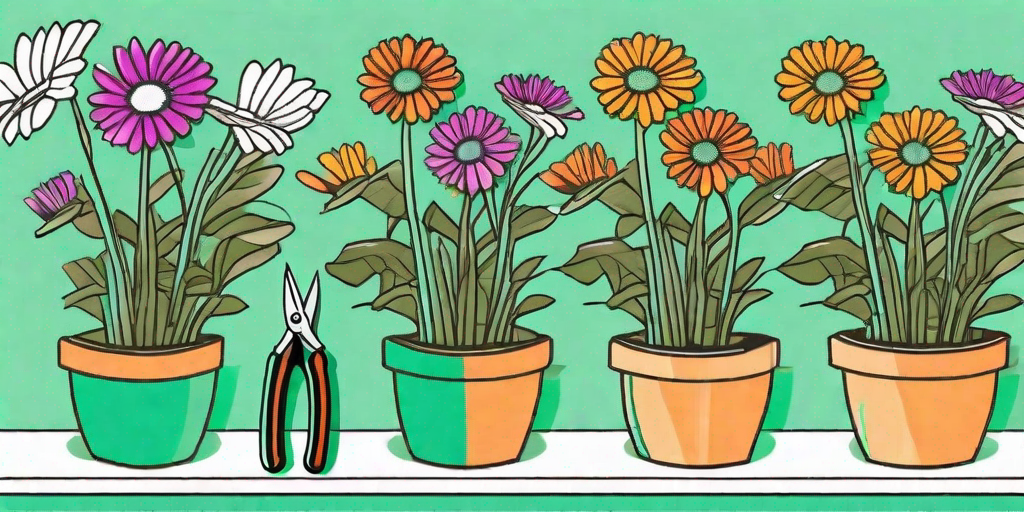
Welcome to the vibrant, captivating, and sometimes downright cheeky world of pinwheel succulents. These little green wonders, also known as Echeveria, are the rockstars of the succulent universe, boasting a rainbow of hues and a fascinating array of shapes. Whether you're a seasoned succulent savant or a budding botanist, this guide will spin you right into the heart of succulent heaven.
The Allure of the Pinwheel Succulent
The pinwheel succulent, with its rosette-shaped leaves spiraling outwards, is a sight to behold. Its charm lies not just in its unique form, but also in the myriad of colors it can display. From the classic green to the more adventurous pink, purple, and even blue, these succulents are the chameleons of the plant world.
But the allure doesn't stop at their looks. These hardy little plants are also incredibly resilient, making them perfect for both green-thumbed enthusiasts and those who are, shall we say, horticulturally challenged. They're drought-tolerant, low-maintenance, and can thrive both indoors and outdoors, making them a versatile addition to any garden or windowsill.
Caring for Your Pinwheel Succulent
Now that you're smitten with the pinwheel succulent, you might be wondering how to keep it happy and healthy. Fear not, for these plants are as easygoing as they come. Here are some tips to help you keep your succulent spinning with joy.
Lighting
Like a sunbathing beauty, pinwheel succulents love their light. A sunny windowsill or a spot in the garden with plenty of sunlight will keep them happiest. However, they're not fans of extreme heat, so make sure they're not exposed to scorching afternoon sun.
If you're growing them indoors and don't have a sunny spot, fret not. These adaptable plants can also thrive under fluorescent lights. Just make sure to turn the lights off at night to mimic the natural day-night cycle.
Watering
When it comes to watering, think of your pinwheel succulent as a camel. It can store water in its leaves and survive for long periods without a drink. Overwatering is a common mistake, and can lead to root rot. So, when in doubt, it's better to under-water than over-water.
A good rule of thumb is to water your succulent when the soil is completely dry. And remember, they prefer a good soak followed by a period of drought, rather than frequent sips of water.
Soil
Just like you wouldn't wear a winter coat in summer, your pinwheel succulent doesn't like to sit in wet soil. A well-draining soil mix is crucial to prevent water-logging. You can easily make your own by mixing regular potting soil with coarse sand or perlite.
When potting your succulent, make sure the container has drainage holes. This allows excess water to escape, keeping your plant's roots happy and healthy.
Propagating Your Pinwheel Succulent
Once you've mastered the art of caring for your pinwheel succulent, you might want to spread the joy by propagating it. This is a simple process that can be done by leaf or stem cuttings, or by separating offsets (baby plants) from the mother plant.
Whether you want to expand your own succulent collection or gift a plant to a friend, propagation is a fun and rewarding process. Plus, who wouldn't want to create more of these adorable little pinwheels?
FAQs
- Why are the leaves on my pinwheel succulent falling off?
Overwatering is the most common cause of leaf drop in succulents. If the leaves are yellow and mushy, you're probably giving your plant too much water. Cut back on watering and make sure the soil is completely dry before watering again.
- Can pinwheel succulents survive in low light?
While these plants prefer bright light, they can adapt to lower light conditions. However, they may become leggy and lose their vibrant colors if they don't get enough light.
- How often should I repot my pinwheel succulent?
As a general rule, succulents should be repotted every two years. However, if your plant is growing rapidly or the roots are coming out of the drainage holes, it might be time for a bigger pot.
In Conclusion
Whether you're a seasoned gardener or a novice, the pinwheel succulent is a delightful addition to your plant collection. With their vibrant colors, unique shapes, and easygoing nature, they're sure to bring a touch of succulent heaven into your home.
So why wait? Dive into the colorful world of pinwheel succulents and let the spinning begin!















